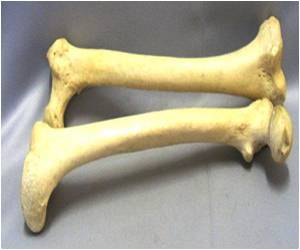Babies born prematurely may have lower bone mass, which is a major determinant of future osteoporosis, a disease characterized by a decrease in bone density.

‘Babies who are born prematurely fail to get adequate calcium from the mother, resulting in lower bone mass and increased risk of osteoporosis.’





"Few studies to date have addressed bone mass in adults who were born with low birth weight, and there are conflicting findings," said Chandima Balasuriya, the first author of the study. Balasuriya is a medical doctor and PhD candidate at the Norwegian University of Science and Technology (NTNU) and St Olavs University Hospital. "Our study shows that both those born prematurely with a very low birth weight and those who were born full term, but small for their gestational age, had lower bone mass than the control group, who were born full term with normal weights." The study was conducted by the Endocrinology and Bone Group, headed by NTNU Professor Unni Syversen, and looked at 186 adults who were 26-28 years old.
Fifty-two of the participants were very low birth weight babies, with a mean birth weight of 1.2 kg, and a mean gestational age of 29 weeks. Another 59 participants had been born to term, but were considered "small for gestational age", with a mean birth weight of just under 3 kg. The researchers also had a control group of 77 adults who were born at term with normal weight.
For all three groups, researchers measured bone mineral content and density in the spine, neck, hip and the whole body, and looked at current height and weight, smoking, level of physical activity and a variety of other measures.
When the researchers looked at the data from adults who were born small for their gestational age at term, they found that this group had lower bone mass than adults who were born with normal weight at term.
Advertisement
The good news is that parents and doctors can put this information to use, by helping low-birth weight children build as much bone mass as possible as they grow and develop, through diet and exercise.
Advertisement
Source-Eurekalert















